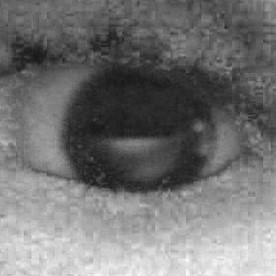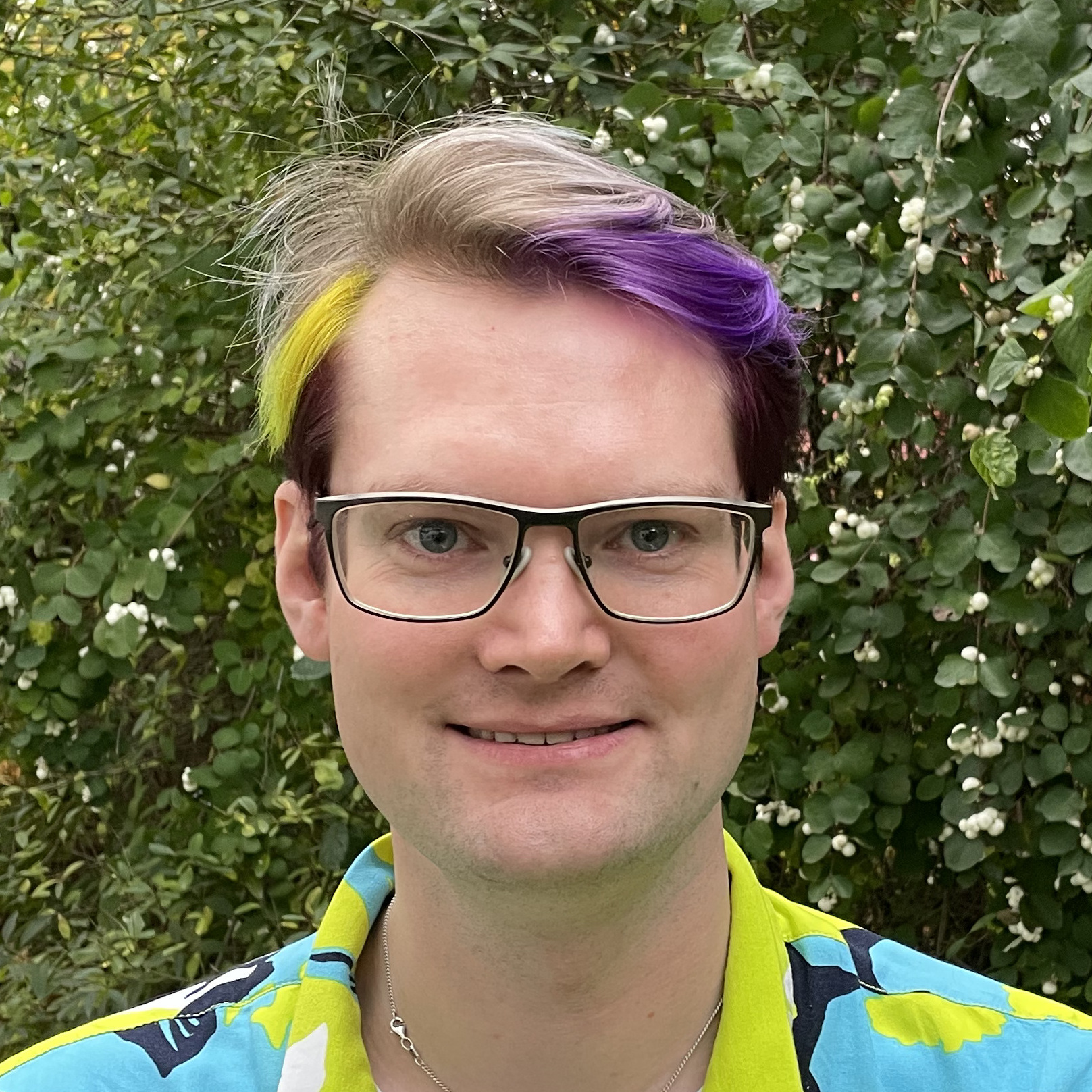2021/Pop-ups/Gardens and Streams II
🌼🐝
Gardens and Streams II is an IndieWebCamp Pop-ups 2021 session focused on the design and use of personal websites with relation to note taking or using them as digital gardens, wikis, commonplace books, Zettelkasten, etc.
Details
- Date: Saturday, September 25, 2021
- Time: 9:00 AM Pacific | 12:00 Eastern | 17:00 GMT+1
- RSVP to one or more of the following:
We’ll discuss and brainstorm ideas related to wikis, commonplace books, digital gardens, and note taking on personal websites and how they might interoperate or communicate with each other. This can include IndieWeb building blocks, user interfaces, functionalities, and everyones’ ideas surrounding these. Bring your thoughts and let’s discuss.
- Format: We'll try to do something between a traditional IndieWebCamp and a pop-up over the span of several hours so that we can accommodate a brief introduction and 2-3 topic related sessions.
- 30 minute introduction & IndieWeb building blocks
- 20 minute session pitches and scheduling
- 10 minute break
- 60 minute Session 1 (including 10 minute break)
- 60 minute Session 2 (including 10 minute break)
- 50 minute Session 3
- 10 minute closing remarks
- Hack day? Yes (likely the following day for 3 hours at roughly the same time)
- Demos? Yes
Resources
- Technology notes for those attending
- IndieWeb Chat Room
- Etherpad: https://etherpad.indieweb.org/GardensAndStreams (for real time chat, questions, and note taking during the session)
- #hashtag: #GardensAndStreams
- Code of Conduct: This event is covered by the IndieWeb Code of Conduct. By participating, you're acknowledging your acceptance of this code.
Organizers
Organizers, facilitators, and volunteers
 Chris Aldrich - organizer
Chris Aldrich - organizerDavid Shanske
Participation
Invitations
- TiddlyWiki list
- RoamResearch list
- Twitter list of digital gardners
- Outreach to prior attendees
- https://lobste.rs/s/ord0rg
- Swale https://bonkerfield.org/2020/05/swale-garden-stream/
Interest
Those who expressed interest in the session during planning:
- +1
 Greg McVerry
Greg McVerry
- Can we focus on webmention extensions for different wiki platforms?
- +1
 kongaloosh
kongaloosh - +1
 hibs
hibs - +1 Maxwell Joslyn
- +1
 Tantek Çelik really like this metaphor and want to see how far we can take it
Tantek Çelik really like this metaphor and want to see how far we can take it - +1
 Ryan Barrett
Ryan Barrett - +1
 Angelo Gladding
Angelo Gladding - +1
 Neil Mather - first one was great!
Neil Mather - first one was great! - +1
 Martijn van der Ven
Martijn van der Ven - +1
 Sebastian Greger
Sebastian Greger - +1
 Ana Rodrigues
Ana Rodrigues - +1 Maxwell Joslyn I wish to sail my streamship down the Web waterways.
- +1
 Tracy Durnell
Tracy Durnell - +1
Jacky Alciné I'd like to learn more about this approach of personal sites and knowledge collection
- +1 PhilJones
- +1
 Murray
Murray - +1
 Jeremy Cherfas Although Saturday night CEST can be difficult for me.
Jeremy Cherfas Although Saturday night CEST can be difficult for me. - +1
 Doug Holton
Doug Holton - +1
 Will Monroe
Will Monroe - +1
 Cathie LeBlanc
Cathie LeBlanc - +1
 Ton Zijlstra
Ton Zijlstra - +1
 Kimberly Hirsh
Kimberly Hirsh - +1
 Frank Meeuwsen
Frank Meeuwsen - Add yourself here… (see this for more details)
Participants
If you'd like, please add your name below as a participant. You can also add a link to your website or online digital garden, commonplace book, zettelkasten, wiki, etc. Feel fee to add what you've been working on on your site lately as an introduction. You can add your details as text, using wiki mark up like [https://example.com Your Name], or if you've got a user page on the wiki with the proper set up and sparkline (see https://indieweb.org/wikifying), you can use the {{YourName}} format.
 Chris Aldrich (Organizer, Code of Conduct contact)
Chris Aldrich (Organizer, Code of Conduct contact)
- primary site/commonplace book at https://boffosocko.com with a TiddlyWiki at http://tw.boffosocko.com and a MediaWiki install at https://wiki.ChrisAldrich.net/Main_Page. I've been working on a text-based set up using Obsidian and hope to have a version of that online soon.
David Shanske (Support, Code of Conduct contact)
 Kevin Marks
Kevin Marks
- my old blog at http://epeus.blogspot.com was a kind of commonplace book, but I haven't really replaced it fully with http://KevinMarks.com yet; I tend to tweet things instead and rely on https://pinboard.in/u:kevinmarks to keep the links. I have previously downloaded the tweets to http://kevinmarks.com/tweets but I need to adapt to the new downlaod format. I have used my site http://www.noterlive.com to take live tweeted notes on events and then save to my site like this: http://www.kevinmarks.com/indiewebcamplondon2020.html
 Johannes Ernst
Johannes Ernst
- Maxwell Joslyn
- https://MaxwellJoslyn.com
- currently posting: articles, translations, Sith Lords, poems, book notes...
- soon to be posting: grad school work, exercise, contact details (private), "experience reviews"...
 Tracy Durnell
Tracy Durnell
- using https://TracyDurnell.com/mind-garden as a place to take notes and log reads and watches
 Angelo Gladding
Angelo Gladding David Somers [omz13] - my writings are currently hidden; the biggest piece of public writing I did was for my MA and its at https://mava.omz13.com (beware: there be arty b******s in there) and the big takeaway was that managing the site generation was too complex
David Somers [omz13] - my writings are currently hidden; the biggest piece of public writing I did was for my MA and its at https://mava.omz13.com (beware: there be arty b******s in there) and the big takeaway was that managing the site generation was too complex
- Maxwell Joslyn aside: gonna take a look at your MA work David :)
- Phil Jones Template:interstar (writing and using https://gitlab.com/interstar/cardigan-bay / http://thoughtstorms.info/view/HelloWorld )
- Template:MarkDilley not regularly there, Bliki: http://MarkDilley.com
 Neil Mather
Neil Mather
- https://commonplace.doubleloop.net - wiki/digital garden
- https://doubleloop.net - indieweb site
- Template:h0p3
- Alasdair Ekpenyong aka Template:futureminded
- digital humanities/ Big Data scholar; digital garden found at www.alasdairekpenyong.com
- (this is a Roam Research / Roam.Garden site ported over to my personal domain name)
- digital humanities/ Big Data scholar; digital garden found at www.alasdairekpenyong.com
- Template:BillSeitz
- wikilog http://webseitz.fluxent.com/wiki
- recently-launched digital-garden-host https://flux.garden
- (seeking new DayJob)
 Nick Simson
Nick Simson
- website: https://NickSimson.com
- notes: https://log.nicksimson.com (WordPress)
- Just here to learn from others today
 Dan Q
Dan Q
- website: https://danq.me
- Blog has gradually expanded in scope over 23 years to now cover things akin to notes, checkins etc., next steps are to integrate logging of location, sleep quality, etc.
 Sebastian Greger
Sebastian Greger
- long been using https://SebastianGreger.net primarily as a personal knowledge management tool (>99% of content not public), my current goal/vision is to keep creating tidbits of content as I go (bookmarks, notes, etc.; i.e. essentially a "stream") and seamlessly organizing those into a curated web of topic pages (the "garden": beyond just listing posts that share a tag, more towards a Zettelkasten)
- just listening today to inspire my ongoing work
- Ward Cunningham
- Christin Wixson
Videos
- Introduction: ▶️ 00:47:40s
- Session 1: Different camps of thought in the digital gardening world - ▶️ 00:47:54s
- Session 2: The Next Step After Notes / Turning Notes into Thoughts and New Ideas - ▶️ 00:54:50s
- Session 3: Crawling The Garden ▶️ 00:52:33s
Notes
IndieWeb Chat logs from the pop-up: https://chat.indieweb.org/2021-09-25
These notes were archived from the etherpad at https://etherpad.indieweb.org/GardensAndStreams
Introduction
Code of Conduct
https://indieweb.org/code-of-conduct
Be respectful of other people. Respectfully ask people to stop if you are bothered, and if you can't resolve an issue, contact staff. If you are being a problem, it will be apparent and you'll be asked to leave.
- Photography Policy* - please don't take screenshots without prior notice to participants. Before we officially begin, we'll do a large group photo for those who'd like to participate.
The sessions will be recorded with audio and video, so please leave your camera/microphone off or on as you feel comfortable. We'll do our best to add "voices" from those communicating via chat, Etherpad, and other channels into the conversation so that those who wish to stay muted or off camera can still participate.
Resources
- Zoom
- chat
- http://chat.indieweb.org/
- https://indieweb.org/discuss
- Loqi - our friendly chat bot which will allow people to ask questions in the chat channels
- Prefer the main #indieweb channel but if folks want to get more technical, please take things to the #dev channel as appropriate.
- Etherpad
- Wiki
Building Blocks
- https://indieweb.org/Category:building-blocks
- HTML
- CSS
- Javascript
- Webmention for notifications
- Micropub for publishing
- Microsub for creating readers, many of which also have
- IndieAuth for authentication and authorization
- WebSub
Session 1
- Different camps of thought in the digital gardening world.
- Facilitator: Alasdair Ekpenyong
- Some of us are here from the personal knowledge management (PKM) side of things, some here from productivity culture. Some are here from the zettlekasten world. Some are primarily writers, some are primarily interested in data. This session would be a chance for us to share/ speak about the different intellectual "camps" that we belong to. We would learn more about the values and beliefs that motivate each of us here to try to create digital gardens. We could benefit from putting these different schools of thought in conversation with each other.
- I wonder if this could be combined with Bill Seitz's ... what kind of community are we trying to build? How does this community interact? And why should this community want to work together?
- +1
 Kevin Marks
Kevin Marks - +1
 Chris Aldrich
Chris Aldrich - +1
 Angelo Gladding
Angelo Gladding - +1
 Neil Mather (agree with maybe combining with Bill Seitz/Chris proposals)
Neil Mather (agree with maybe combining with Bill Seitz/Chris proposals) - +1
 Tracy Durnell
Tracy Durnell - +1 Christin Wixson
- +1 Template:h0p3
and some discussion on the following topic which was "merged":
- Meta (Template:BillSeitz): What's the point/goal? What's the Theory of Change http://webseitz.fluxent.com/wiki/TheoryOfChange? Right now adopting IndieWeb protocols takes work so you can join a network of.... 12 people. (I recently just built Twitter-search links into my wikilog pages, rather than bothering with WebMentions.)
- Maybe the theory is that a small number of people are a [CreativeNetwork](http://webseitz.fluxent.com/wiki/CreativeNetwork) of collaborators?
- Theory of Change I'm scratching at <miro board> https://miro.com/app/board/o9J_l0-WNrM=/
- perhaps this links to 'inter-garden communication' idea from
 Chris Aldrich - is connecting gardens part of theory of change?
Chris Aldrich - is connecting gardens part of theory of change? - +1 for combining this with Alasdair Ekpenyong ... who is the community and what is the goal of collaborating / being a community.
 Kevin Marks - I find the Wardley Mapping approach very useful for thinking about this
Kevin Marks - I find the Wardley Mapping approach very useful for thinking about this
session about learning more on the values and beliefs that drive each of us to this community
- there are lots of different words used to describe this community and interests
- e.g. **PKM** - efficient note taking, building a second brain, zettelkasten
- some of us use it more for **writing**
- (Personal Knowledge Management)
- Tiago Forte's approach to having a "second brain"
- also Cory Doctorow's outboard brain
- Zettelkasten/Commonplace books
what brought each of us to digital gardens? what values brought us here?
- the article in MIT Review - https://www.technologyreview.com/2020/09/03/1007716/digital-gardens-let-you-cultivate-your-own-little-bit-of-the-internet/
- see paragraph starting "The new wave of digital gardens..."
 Johannes Ernst
Johannes Ernst
- not a garden, more overgrown, with weeds... "i'm a terrible gardener"
- i don't want the garden of versailles, but maybe that combined with permaculture
- what brought him here is to learn from others?
- bill
- what are you trying to accomplish?
- sometimes driven by a fear (eg. FOMO) or not organising notes well enough
- but why should you care if your garden is a mess?
- if you have three big ideas you want to promote, then that's the starting point
 Chris Aldrich
Chris Aldrich
- been in indieweb for serveral years
- building a site, recording lots of data, was functioning as a commonplace book
- had an aha moment when
 Kevin Marks always popped up in chat with reference to his well-researched articles already built up, and linked to everything else - kevin's site was a commonplace book, chris then realized his was one too
Kevin Marks always popped up in chat with reference to his well-researched articles already built up, and linked to everything else - kevin's site was a commonplace book, chris then realized his was one too - small simple notes, sometimes tweeting them out
- came to it organically, now going back and researching the whole space around it
- zettelkasten community often thinks that Niklas Luhmann invented the idea, but the idea goes back through most of the history of Western culture to ancient Greece out of the idea of commonplaces and the commonplace book tradition.
- Vannevar Bush was likely talking about commonplace books in 'As We May Think' but not using the term has been a disservice to his readers
- Phil Jones
- digital gardening, zettelkasten has strong resonance with what was happening 20 years ago with blogs and wikis
- the energy is very similar - how can we create our own space, use the internet to share it, learn to express multiple facets of ourselves?
- as a programmer, part of even older tradition, includes all attempts to make computing personal human level thing
- Doug Engelbart, interactive systems, Alan Kay, smalltalk a good history of this is HyperLand, which is just pre-web
- another good history: http://webseitz.fluxent.com/wiki/MemoryMachinesTheEvolutionOfHypertext
- unrealised current about how computer is a tool for augmented you as an individual
- how you learn about the world by building your own models (see e.g. Seymour Papert)
- Ted Nelson - building hypertext/xanadu to try and manage multiple thoughts and ideas
- Ward Cunningham inventing wiki
- a lot of these ideas got lost with facebook, social media, etc, channeling us in to a useful format for them to sell ads
- indieweb was an attempt to push back on that
- digital gardeners is a new generation pushing back against this as well
- people want a digital garden because that's how the computer be a tool for us to make our own spaces
 Kevin Marks
Kevin Marks
- building a repository of own knowledge on own website
- using Mastodon, Twitter, etc to feed some of that info in and back out again
- Cory Doctorow post highlights http://webseitz.fluxent.com/wiki/2021-01-13-DoctorowPluralistic20YearsABlogger
- Alasdair Ekpenyong
- combination of the garden and the stream
- daily thoughts go in to my garden, and i post to twitter less now, whatever goes there now is very intentional
- http://webseitz.fluxent.com/wiki/StreamFlowVsGardenStock
- Humanizing the computer
- Alasdair's intentionality for Tweeting has increased by focusing on the garden first and Twitter second
Question by Alasdair Ekpenyong: has your garden given you any insight, clarity? does computing feel more accessible?
- Phil Jones - feeling of inability to control software, mobile device
 Angelo Gladding - wasn't until did literal gardening that he understood metaphor
Angelo Gladding - wasn't until did literal gardening that he understood metaphor Chris Aldrich
Chris Aldrich
- intentionality. working in the garden (personal site/space) first, and only then sending to the stream
- double-entry bookkeeping accountants - "wastebook" running list (like fleeting note)
- https://en.wikipedia.org/wiki/Waste_book
- aside: i keep hearing wastebook as Facebook haha (apt)
- Christin Wixson
- feel like a bit of odd-duck, non-technical; coming from academia / teaching, uses tiddlywiki / stroll out of the box; for undergrads, the need for open-source / cheap solutions is important
 Chris Aldrich
Chris Aldrich
- some attendees also iAnnotate conference (earlier in 2021 https://iannotate.org/2021/), run by Hypothes.is https://web.hypothes.is/- web annotation software
- Phil Jones
- not about being technical or too stupid to figure out - the major platforms are intentionally fighting against interoperability, openness, taking us to places we don't want to go, which is why we must embrace indieweb
- Alasdair Ekpenyong
- interesting concept of - instead of googling for answers, searching your own personal knowledge base first (had heard it from Roam community)
- Template:billseitz I used to write Markdown files on my phone and then sync them to my PrivateWiki. Have instead gone toward both my spaces being in cloud/webapp so I can read/write from phone (or anything else)
- Template:h0p3: My hypertext exists for many reasons, including to unify my absurd life, to speak with people (including myself), to contribute to the great human conversation, to function as an effective dialectical extension of my identity, and to make progress on crucial problems.
 Neil Mather I come to the community from both the garden and stream perspectives. I've had an indieweb site for about 4 years or so, seeing this as more of the streaming side of things. I've had a digital garden in it's roughly current form since about 2020 (although obviously taking notes from before then). This came from a desire for better PKM and getting my thoughts in order. I do it to bolster my own ideas on technology, politics, the environment, and culture. *Learning in public* to motivate and to get feedback. Recently I've also been publishing to Anagora. I kind of view it as a garden aggregator. I see this as part of building a knowledge commons, an alternative way of doing this to a centralised wiki. Multiple personal wikis combining.
Neil Mather I come to the community from both the garden and stream perspectives. I've had an indieweb site for about 4 years or so, seeing this as more of the streaming side of things. I've had a digital garden in it's roughly current form since about 2020 (although obviously taking notes from before then). This came from a desire for better PKM and getting my thoughts in order. I do it to bolster my own ideas on technology, politics, the environment, and culture. *Learning in public* to motivate and to get feedback. Recently I've also been publishing to Anagora. I kind of view it as a garden aggregator. I see this as part of building a knowledge commons, an alternative way of doing this to a centralised wiki. Multiple personal wikis combining. Tracy Durnell on a meta level I've found a better sense of when I'm reading a bunch of mental junk food versus things that make me think and make connections - I notice when I'm not saving many things - and also makes me realize when I'm spending too much time reading others' thoughts instead of thinking my own
Tracy Durnell on a meta level I've found a better sense of when I'm reading a bunch of mental junk food versus things that make me think and make connections - I notice when I'm not saving many things - and also makes me realize when I'm spending too much time reading others' thoughts instead of thinking my own Nick Simson I am very new to the IndieWeb, but I started a WordPress site to act as a kind of bridge between different silos (are.na, reading.am) and the writing output on my main site. Not sure if its a garden or a commonplace book, or just another old school blog? It may take some time to see what shape it takes. I love WordPress' post formats (status, aside, video, quote, link) as well as the ability to tag things easily. I wrote a little about it in my intro post: https://log.nicksimson.com/hello-world/
Nick Simson I am very new to the IndieWeb, but I started a WordPress site to act as a kind of bridge between different silos (are.na, reading.am) and the writing output on my main site. Not sure if its a garden or a commonplace book, or just another old school blog? It may take some time to see what shape it takes. I love WordPress' post formats (status, aside, video, quote, link) as well as the ability to tag things easily. I wrote a little about it in my intro post: https://log.nicksimson.com/hello-world/
The idea of a waste book: https://en.wikipedia.org/wiki/Waste_book
Hello, I'm mostly lurking, and not too qualified to discuss the grand or philosophical, but to follow up on the "polemic" of Phil a few minutes ago, and to the question from Alasdair that started the session, I found a very interesting argument from a link  Chris Aldrichshared about one month ago. Which is that we do this not merely to share ideas or have an online presence or make a cool looking site or whatnot, but to fulfill some kind of an ethical obligation or responsibility to the future of our species/civilization. And that the solution (to perhaps a very existential threat) includes things like the IndieWeb, ownership, self-publishing, "digital gardening," or whatever you want to call it
Chris Aldrichshared about one month ago. Which is that we do this not merely to share ideas or have an online presence or make a cool looking site or whatnot, but to fulfill some kind of an ethical obligation or responsibility to the future of our species/civilization. And that the solution (to perhaps a very existential threat) includes things like the IndieWeb, ownership, self-publishing, "digital gardening," or whatever you want to call it
One thing that's very exciting to me is "ThreadReader" type bots on Twitter etc. I think there's a great need / scope for tools that can turn the stream back into a more permanent record. People aren't disciplined enough to persist / recycle their "waste", but maybe bots / tools can do it for us :-)
- How does Loqi work?
- Loqi listens to chat for what is x? questions and returns wiki definitions, and also allows you to add 'what is' definitions to the wiki if one doesn't exist. There is also a way to append 'see also' lines to an entry
https://anagora.org - a shared aggregated wiki community built by Flancian
Is anyone providing paid Known hosting? (context: business models for non-BigTech tools)
Another cheap/lowtech possibility: see if Wikity can be revived http://webseitz.fluxent.com/wiki/WikiTy
Session 2
- The Next Step After Notes / Turning Notes into Thoughts and New Ideas [11:00 AM Pacific] [18:00 UTC]
- Facilitator:
 Tracy Durnell
Tracy Durnell - What's your process for returning to past entries, whether to refresh and expand what you've noted and create connections with newer notes, revisit past thoughts, or connect and process into new thoughts / writings / projects elsewhere?
- Is it needed to return to old notes? Or is the process of taking the note enough to get it working in your subconscious thoughts?
- How do you get others' input on your notes to add to and transform them? (Less from a technical standpoint, more from the thought of connecting others who'd have thoughts about the topic with what you've written)
- Facilitator:
- Interest
- +1
 Neil Mather - I tend to 'collect' a lot of notes, quotes, etc, am trying to be more conscious of connecting and creating new notes or 'notions'
Neil Mather - I tend to 'collect' a lot of notes, quotes, etc, am trying to be more conscious of connecting and creating new notes or 'notions' - +1 Phil Jones - I'm working on rennovating and cleaning up an old wiki, so very interested in ideas for what to do with older / existing notes.
- +1
David Shanske
- +1
 Angelo Gladding - what kind of entries deserve a return/edit? what's the goal of the entry?
Angelo Gladding - what kind of entries deserve a return/edit? what's the goal of the entry? - +1 Maxwell Joslyn - i want to build an 'on this day' feature a la
David Shanske then enhance that into a " do you want to revisit this post?" nudge -- or a "bundle up these five posts from category X over the last year into a retrospective?"
- +1
 Kevin Marks Cory's workflow is interesting https://pluralistic.net/2021/01/13/two-decades/
Kevin Marks Cory's workflow is interesting https://pluralistic.net/2021/01/13/two-decades/ - +1 Christin Wixson
- +1 Template:brunow
- +1
with a little bit of...
- Common Note Taking patterns [19:000 UTC]
- Facilitator:
 Chris Aldrich and
Chris Aldrich and  Johannes Ernst
Johannes Ernst - What sorts of things are we typically capturing and how can the requirements for them be kept as simple as possible for publishing them online. How can these patterns assist in making site-to-site communication and collaboration as simple as possible? What does an IndieWeb notebook/commonplace look like?
- #NotePatterns
- +1
 Johannes Ernst: what are the actual use cases, and if it is distributed, what's the "distributed UX" (I mean less the code part than how people collaborate and interact)
Johannes Ernst: what are the actual use cases, and if it is distributed, what's the "distributed UX" (I mean less the code part than how people collaborate and interact) - +1 Template:brunow
- I wonder if this can be combined with Tracy's? What are the patterns of notetaking ... immediately and longer term?+1
- Facilitator:
![]() Tracy Durnell: The previous session was about why we're taking notes. this session is about practicality.
Tracy Durnell: The previous session was about why we're taking notes. this session is about practicality.
 Angelo Gladding: in code, puts TODOs right next to the relevant code, otherwise doesn't get attention. can analog be applied to blogging?
Angelo Gladding: in code, puts TODOs right next to the relevant code, otherwise doesn't get attention. can analog be applied to blogging?
Some use "note to self" or "TK" (a traditional editorial mark meaning "to come"; tk is an uncommon letter digraph from an information theoretic perspective, so searching documents for tk will almost always return things that are "to kome") in their notes/writing to come back to later.
 Chris Aldrich: wants Medium.com-like TK as searchable metadata
Chris Aldrich: wants Medium.com-like TK as searchable metadata
what works for Bill: just spew out the notes, will never write a polished post, casually
Nick: Maggie Appleton seedling budding evergreen metaphor (https://maggieappleton.com/garden)
- Maggie's post about metaphors in carpentry and cooking: https://twitter.com/Mappletons/status/1440782656921161731
- https://brainbaking.com/ as a cooking/baking metaphor
![]() Tracy Durnell: has changed the way I think, the way I read
Tracy Durnell: has changed the way I think, the way I read
 Johannes Ernst: team meeting notes. TODOs should be part of a to-do list and not sit in context of meeting. a data-structure and visualization issue (intertwingled). notices same concept but slightly different in github projects, folders, projects on omnifocus. see also under Johannes above (overgrown garden). especially in heterogeneous (rather than single organization) context
Johannes Ernst: team meeting notes. TODOs should be part of a to-do list and not sit in context of meeting. a data-structure and visualization issue (intertwingled). notices same concept but slightly different in github projects, folders, projects on omnifocus. see also under Johannes above (overgrown garden). especially in heterogeneous (rather than single organization) context
Bill: agenda that turns into notes, redundancy
Alasdair Ekpenyong: Wishes to better visualize themes in graph one day
 Chris Aldrich: Ahrens - get down thought in writing immediately, Doctorow - at least expand on it enough so it's understandable to future you / someone else. Pseudo-private note-taking (Hypothes.is annotations) preceding publishing. How to not repeat yourself/duplicate between wordpress website and obsidian, no easy way to search your entire silo collection - this is why post everything in one place
Chris Aldrich: Ahrens - get down thought in writing immediately, Doctorow - at least expand on it enough so it's understandable to future you / someone else. Pseudo-private note-taking (Hypothes.is annotations) preceding publishing. How to not repeat yourself/duplicate between wordpress website and obsidian, no easy way to search your entire silo collection - this is why post everything in one place
 Kevin Marks: share link if only have one thing to say, write coherent blog post if has two (saved up, or remind of something else).
Kevin Marks: share link if only have one thing to say, write coherent blog post if has two (saved up, or remind of something else).
 Chris Aldrich: Sharing your written thoughts may feel obnoxious on sharing end, but usually not on receiving end
Chris Aldrich: Sharing your written thoughts may feel obnoxious on sharing end, but usually not on receiving end
 Johannes Ernst: diarying on climate catastrophe, in git history, revisiting
Johannes Ernst: diarying on climate catastrophe, in git history, revisiting
Someone was talking about finding patterns in their writing. I've pondered that, too, thinking 1 interesting tool to use to summarize old pages: http://webseitz.fluxent.com/wiki/StatisticallyImprobablePhrase
 Angelo Gladding: do you modify your old TKs/documents (long master), or create a new one and then link back to it? (so you can see evolution)
Angelo Gladding: do you modify your old TKs/documents (long master), or create a new one and then link back to it? (so you can see evolution)
Bill: I might rename a page like "My dream life" into "My dream life from 2007", copy-pasting the contents
 Angelo Gladding: details/diffs of recent changes are almost like a stream coming from the garden
Angelo Gladding: details/diffs of recent changes are almost like a stream coming from the garden
Nick: idea to auto link to internet archive for keeping track of progress/ past versions (esp if dont have skills to build it yourself)
 Chris Aldrich: recently WordPress provides RSS feed for most recent updates rather than most recently published, but pattern is not common yet in the wild.
Chris Aldrich: recently WordPress provides RSS feed for most recent updates rather than most recently published, but pattern is not common yet in the wild.
Bill: usually want a (personalized?) bundled/rolled up diff since your last visit.
 Chris Aldrich mentioned that MediaWiki and Wikipedia has those sorts of links in emails
Chris Aldrich mentioned that MediaWiki and Wikipedia has those sorts of links in emails
h0p3: better to tag pages we want to see diffs of, otherwise there's too much noise
 Johannes Ernst: conversation shifted from how to indicate recent changes to your own notes, to notifications in collaborative context
Johannes Ernst: conversation shifted from how to indicate recent changes to your own notes, to notifications in collaborative context
 Chris Aldrich: Flancian's anagora.org, maybe SFW
Chris Aldrich: Flancian's anagora.org, maybe SFW
Ward Cunningham: Write full sentences or I won't fork you! ;)
 Kevin Marks: Github makes forking the first thing you do, rather than the last thing you do (a bit like Federated Wiki), and you package up changes "here you go, take it if you like" - unlike previous model of open source with a maintainer/gatekeeper
Kevin Marks: Github makes forking the first thing you do, rather than the last thing you do (a bit like Federated Wiki), and you package up changes "here you go, take it if you like" - unlike previous model of open source with a maintainer/gatekeeper
Phil Jones: in maintaining wiki over a long term, the challenge/question "is this still relevant?" more important (wayback machine often solves linkrot). Stewart Brand - shearing layers, buildings/architecture - each layer (of e.g. text) has its own lifecycle or degree of time it's valid for. Can't tell someone to even go to a Twitter post from 2 days ago; can't search month-old Facebook discussions - http://webseitz.fluxent.com/wiki/LayEr
Bill: Tagging (e.g. seedling / 1% evergreen) as way to make easier to keep track of
 Chris Aldrich: Heraclitus: "you never step in the same river twice" (as it's constantly changing), even when you revisit it's from a new context
Chris Aldrich: Heraclitus: "you never step in the same river twice" (as it's constantly changing), even when you revisit it's from a new context
![]() Tracy Durnell: more to discuss in future re how to deal with age and volume of notes
Tracy Durnell: more to discuss in future re how to deal with age and volume of notes
Template:h0p3: I see myself as exploring, discovering, or creating new processes that I execute by hand. It's a human that picks out what is salient, and I'm not sold on automation buying me all that much outside of search and distribution. I require a variety of notetaking approaches, and I think it's not easy to generalize about how to do it well. Naming is a hard problem. I suggest the broader the telos of the hypertext, the more difficult it is to pin down the fitting way to engage in its practices. My prediction is that my notetaking will continue to evolve. I feel like I just have to go with the flow at this point.
![]() Tracy Durnell another garden metaphor I use for thinking about writing / work is whether it's meant to be "annual" or "perennial" - annual is for of-the-moment thoughts, perennial is longer term that's meant to grow
Tracy Durnell another garden metaphor I use for thinking about writing / work is whether it's meant to be "annual" or "perennial" - annual is for of-the-moment thoughts, perennial is longer term that's meant to grow
 Kevin Marks Twitter theory post http://epeus.blogspot.com/2009/03/how-twitter-works-in-theory.html
Kevin Marks Twitter theory post http://epeus.blogspot.com/2009/03/how-twitter-works-in-theory.html
- https://epeus.blogspot.com/2010/02/twitter-theory-applied-to-google-buzz.html
- http://www.kevinmarks.com/mastodontheory.html
Session 3
- Crawling The Garden
- Facilitator:
 Angelo Gladding
Angelo Gladding - We know how to ride a raft down the stream, how do we better navigate the greater garden of the web? follow a stream, crawl through the garden -- have your site/software/service crawl beyond the resources you immediately know to help you discover new and interesting things (people, posts, projects, ...).
- Usefully map the mentions you find along the way.
- Interest
- + 1
 David Somers [omz13] - discovery via microformats of similar interests/cageories?
David Somers [omz13] - discovery via microformats of similar interests/cageories? - +1 Maxwell Joslyn
- +1 Template:h0p3 [hi h0p3 o/ ] -- └[∵┌]└[ ∵ ]┘[┐∵]┘
- +1
 Tracy Durnell
Tracy Durnell - +1
 Kevin Marks have you seen james's indieweb search? (<~YES) https://indieweb-search.jamesg.blog/
Kevin Marks have you seen james's indieweb search? (<~YES) https://indieweb-search.jamesg.blog/
- + 1
- Facilitator:
and bits of another proposed session that was "merged"
- Interop : Escaping Unrecognised Code
- Facilitator : Phil Jones
- We have two contradictory requirements : to share data between different tools, to extend the powers of tools by adding new features. This inevitably means that each tool will have markup / data that other tools don't know how to handle or render correctly.
- How can we solve this? Can we invent a standard for "escaping" / encapsulating and rendering code from another site which our tools can't handle, but could at least render in a nice looking / comfortable way?
- Interest
- +1
 Kevin Marks: we have ways of doing this using post types already, but that does require the other site to have conforming markup.
Kevin Marks: we have ways of doing this using post types already, but that does require the other site to have conforming markup. - #escapingunrecognised
- +1
 Chris Aldrich
Chris Aldrich
- +1
- Inter-garden communication (or backlinks across the web)
- Facilitator:
 Chris Aldrich
Chris Aldrich - Backlinks within one's own digital notebook have become a big thing over the last two years as seen in many tools like Roam Research, Obsidian, Notion, etc. But what if my online notebook could talk to your online notebook and they could have a threaded conversation? What if they could also communicate with blogs or social media sites? In this session we'll discuss and outline how online wikis, digital gardens, notebooks, etc. can use the IndieWeb building block and W3C web standard Webmention to allow site to site communication
- #TalkingMemex
- Interest
- +1 (
 Neil Mather)
Neil Mather) - +1{{brunow}
- +1 Template:BillSeitz
- +1
 Kevin Marks
Kevin Marks
- +1 (
- Facilitator:
Search engine for indieweb sites by James expanded to 900 sites
Scrapability - http://webseitz.fluxent.com/wiki/DigitalGardenStandards
An old wiki pattern: list of http://meatballwiki.org/wiki/AllPages
Curated recommendation engine, based on locally stashed full-text archives and weighted/scoped within neighborhood of your site/interests. browsable UX. taking advantage of modern large screen sizes
Note you can make a custom Google Search of a list of sites http://webseitz.fluxent.com/wiki/GoogleCoop
 Kevin Marks: Spammers are very good at taxonomy, can use their alias network, it has meta-value
Kevin Marks: Spammers are very good at taxonomy, can use their alias network, it has meta-value
- Example: People who use dozens of hashtags on Instagram to attempt to improve on their reach
- Finally, spammers are contributing something ;)
WebOfTrust (friend of a friend) http://webseitz.fluxent.com/wiki/WebOfTrust
H0p3: wants persistent sidebar in browser showing any conversations related to content on web page
 Johannes Ernst: Also need to not exclude sometimes, or else remain in bubble (e.g. politics)
Johannes Ernst: Also need to not exclude sometimes, or else remain in bubble (e.g. politics)
Bill: when build technology (e.g. search engine or payment processor) fighting spam and fraud eventually becomes 99% the name of the game
 Chris Aldrich: showing Flancian's anagora.org with a node as multiple contributors' pages with the same name. Stoa - a shared etherpad per node. One of the few actively experimenting with this specific problem.
Chris Aldrich: showing Flancian's anagora.org with a node as multiple contributors' pages with the same name. Stoa - a shared etherpad per node. One of the few actively experimenting with this specific problem.
H0p3: sharded/distributed by salience to you - cheesy hack: Twitter search of PeopleYouFollow https://twitter.com/search?q=zettlekasten&src=typed_query&pf=on
 Angelo Gladding: idea of querying someone else's search engine
Angelo Gladding: idea of querying someone else's search engine
![]() Tracy Durnell: e.g. "I know this person knows much more about $topic than I do"
Tracy Durnell: e.g. "I know this person knows much more about $topic than I do"
 Chris Aldrich: Strong signal for a recommendation is if the person actually engages/consumes regularly (e.g. listened to every podcast episode) unlike Brief History of Time (one of most purchased but least read books)
Chris Aldrich: Strong signal for a recommendation is if the person actually engages/consumes regularly (e.g. listened to every podcast episode) unlike Brief History of Time (one of most purchased but least read books)
- other doorstop http://webseitz.fluxent.com/wiki/NewKindOfScience
 Chris Aldrich: most people are seeing problem through lens of Google trying to be massive memex for the whole world; rather than local mini-graph
Twitter-as-memex https://twemex.app/
Chris Aldrich: most people are seeing problem through lens of Google trying to be massive memex for the whole world; rather than local mini-graph
Twitter-as-memex https://twemex.app/
- https://twitter.com/search?q=memex%20twitter&src=typed_query&f=live&pf=on
- https://twitter.com/brandontoner/status/1394592077585989633
 Angelo Gladding: wanted to talk about crawling because saw list of links when he crawled; various ways to notice a change on a site - crawlers naturally already have to handle that issue
Angelo Gladding: wanted to talk about crawling because saw list of links when he crawled; various ways to notice a change on a site - crawlers naturally already have to handle that issue
Posts About
Please link any blog posts, articles, notes, etc. relating to the session below
- 2021-07-03:
 Chris Aldrich Differentiating online variations of the Commonplace Book: Digital Gardens, Wikis, Zettlekasten, Waste Books, Florilegia, and Second Brains
Chris Aldrich Differentiating online variations of the Commonplace Book: Digital Gardens, Wikis, Zettlekasten, Waste Books, Florilegia, and Second Brains
- 2021-06-27:
 Chris Aldrich Planning for Gardens and Streams II: An IndieWebCamp pop-up session on Wikis, Digital Gardens, online Commonplace Books, and note taking
Chris Aldrich Planning for Gardens and Streams II: An IndieWebCamp pop-up session on Wikis, Digital Gardens, online Commonplace Books, and note taking
- ...
Pre-Planning
- Post about event
- Post to Events site
- Post wiki page
- Make sure the Zoom recording space has been cleaned out for adding
- Need additional zoom rooms? (probably not)
- Invitations sent to those interested
Previously
IndieWebCamps
